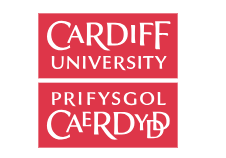About Advanced Mechanical Engineering (msc) in Cardiff University
As a graduate mechanical engineer, this MSc course will provide you with an advanced qualification which will enhance your career prospects and extend and update your skills and knowledge. The course actively encourages the understanding and practice of inter-disciplinary systems engineering thinking that brings together mechanical engineering subjects in a way that reflects the needs of industrial and academic problem solving.
More specifically, the programme aims to:
- Provide you with an advanced knowledge of topics in mechanical engineering, and in associated engineering and scientific disciplines over a broad range of specialist subjects.
- Provide an awareness of the safety, environmental, social and economic context in which mechanical engineers need to operate.
- Offer you the opportunity to develop a wide range of intellectual, practical and transferable skills that will allow you to follow a career in research, industry and other professional areas of the economy.
- Help you to gain a systematic understanding and a critical awareness of current problems and new insights which are at the forefront of mechanical engineering.
The close integration of the case study and project will allow you to explore, in-depth, a chosen topic related to the course. This provides you with an individually tailored programme to meet your needs in a flexible yet focussed manner, with the project seen as being the key opportunity to acquire and exercise leading edge mechanical engineering knowledge. You will be given the opportunity to show originality in applying the knowledge you acquire, and will develop an appreciation of how the boundaries of knowledge are advanced through research. You will be trained to deal with complex issues both systematically and creatively, and will be given the opportunity and encouragement to demonstrate initiative and innovation in solving challenging problems and in designing new components and systems.
The close involvement with industry, particularly at the project stage, ensures that the experience the course provides has both relevance and meaning. Lecturers delivering the modules are working with some of the world's most renowned engineering companies. Partners include Airbus, BAe Systems, Bosch, Tata Steel, Daimler, EADS, Fiat, Hewlett-Packard, IBM, Messier-Dowty, Network Rail, TWI, Parametric Technology, Physical Acoustics Ltd, Renault, Renishaw, Rolls-Royce, SAP, Siemens, Silicon Graphics, Stile Bertone, The Highways Agency, TRL, Microchip, and WS Atkins.
This degree course will prepare you for entry into careers in research or industry. In addition to technical skills, you will acquire professional skills such effective communication with technical, management and non-technical audiences, project planning, evaluation and prioritisation.
Academic qualification equivalents
English language requirements
- IELTS : 6.5
- TOEFL IBT: 90
- PTE: 62
Cardiff University Highlights
| University Type |
Public |
| Campus Setting |
Urban |
| Establishment Year |
1883 |
| Application cost |
20/25 GBP |
| Average Cost of Attendance |
32,000 GBP |
| Mode of Program |
Full time, distance, and online |
| Graduate Job Rate |
95.7% |
Cardiff University Cost of Attendance
The estimated fees for the 2020/2021 academic session are presented in the table below.
| Fees |
Undergraduate (GBP) |
Postgraduate (GBP) |
| Tuition Fee |
17,700 – 21,950 |
21,950 - 23,450 |
| Rent (including bills) |
5,320 |
6,920 |
| Food |
1,400 |
1,820 |
| Books and copying |
400 |
500 |
| Social |
1,080 |
1,400 |
| Clothes |
225 |
300 |
| Laundry and toiletries |
225 |
420 |
| Travel |
900 |
1,200 |
| Telephone/mobile and TV license |
450 |
600 |
| Total |
27,700 – 31,950 |
35,110 – 36,610 |
